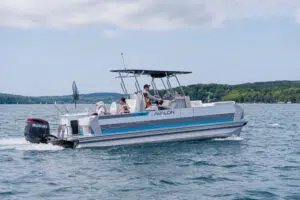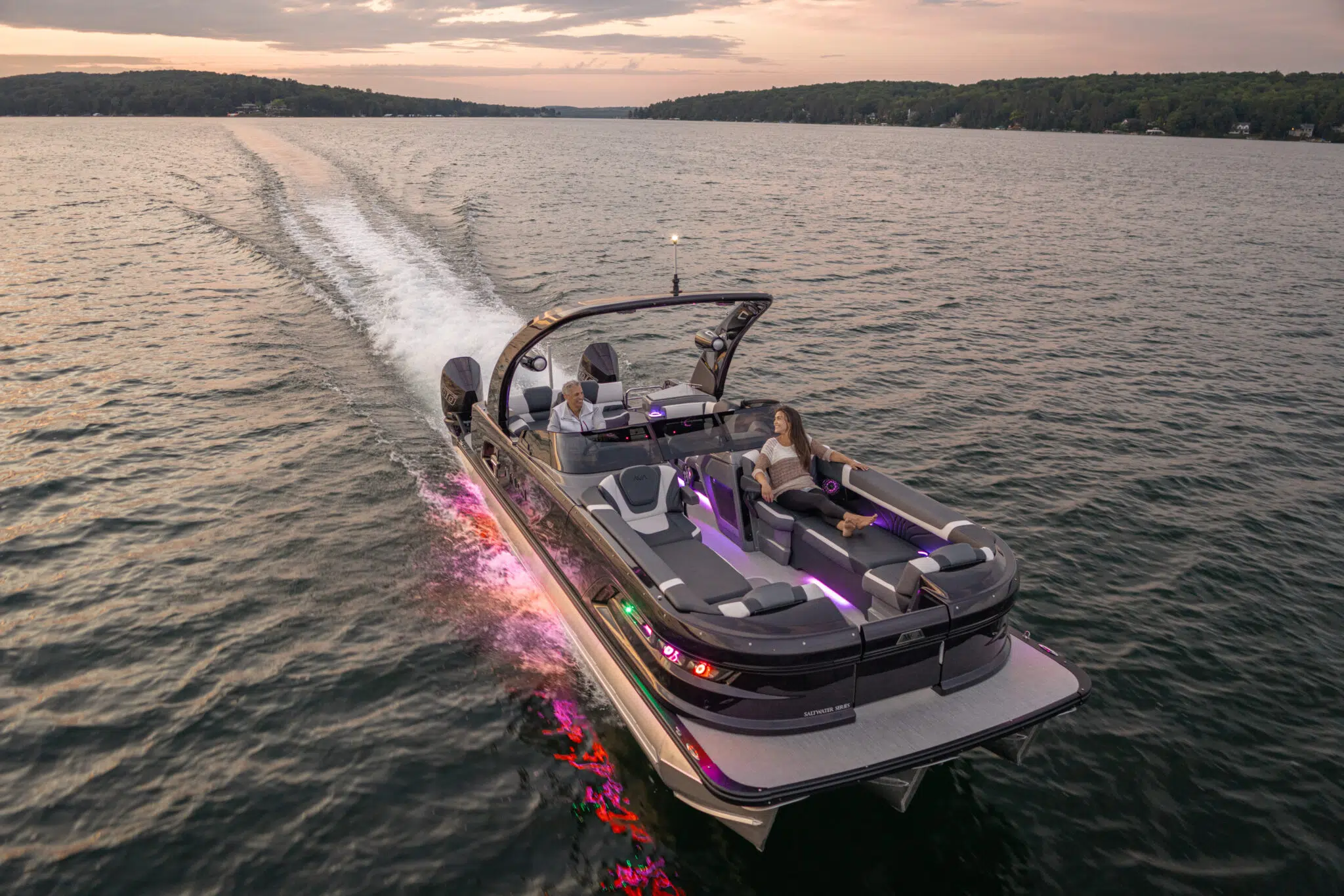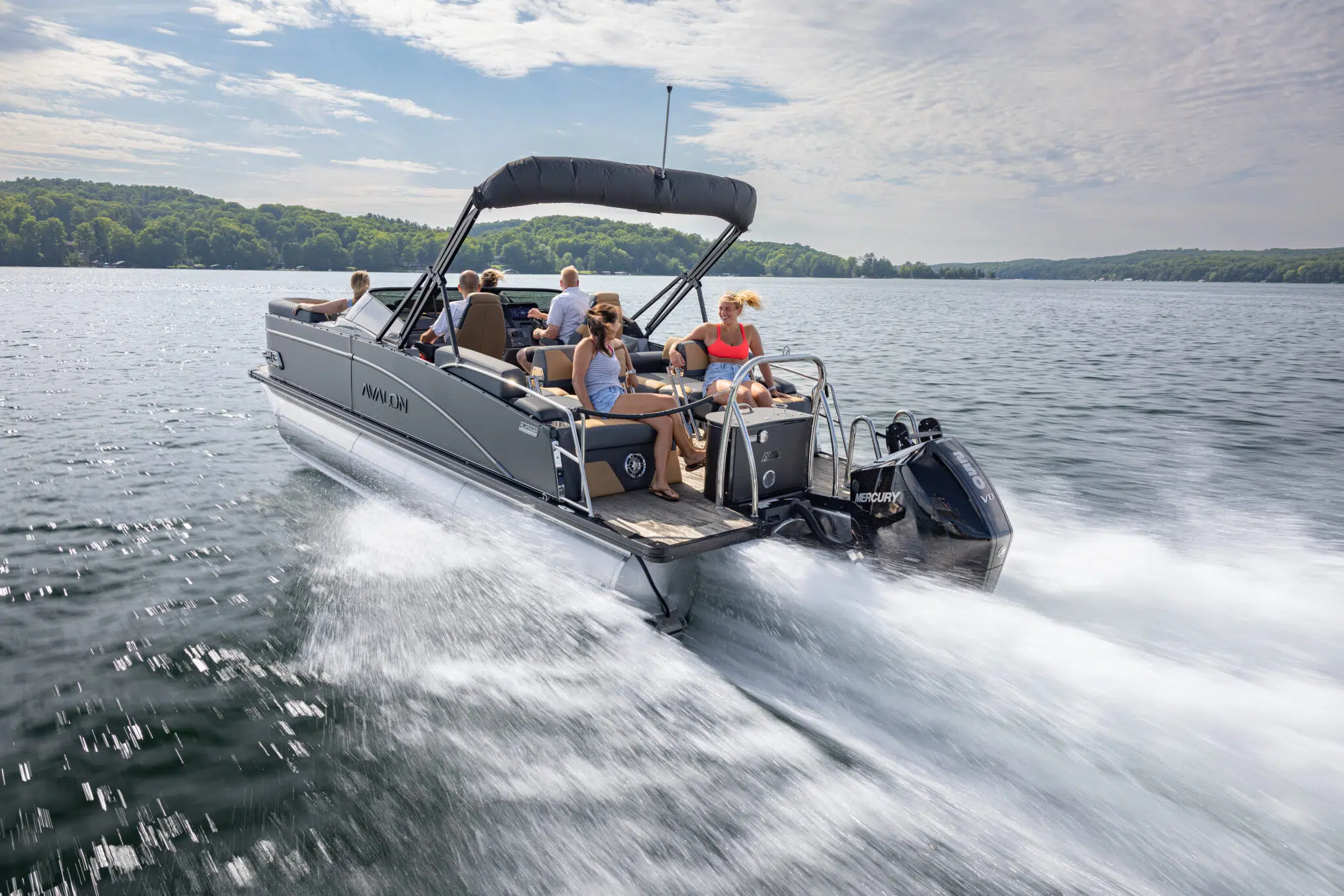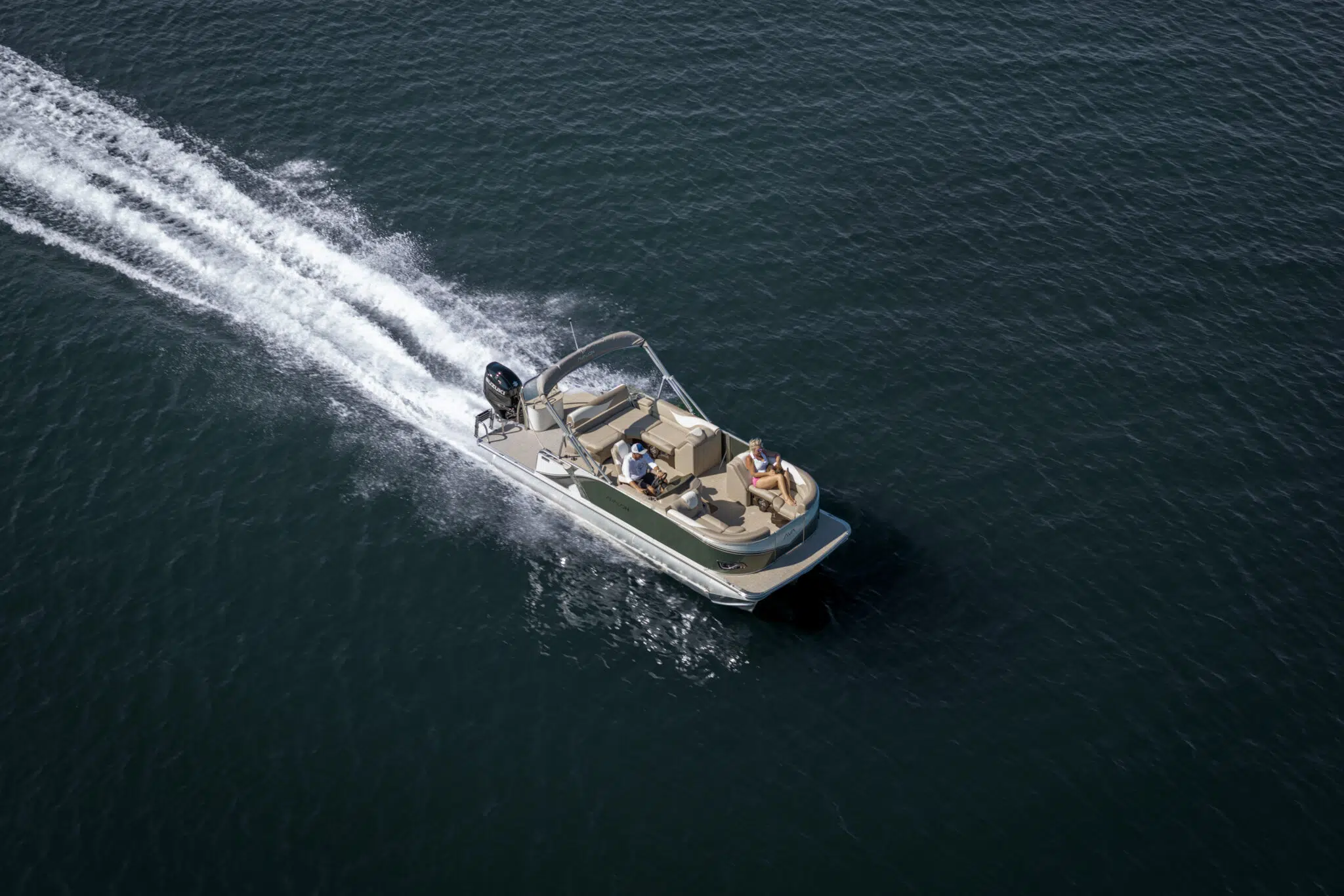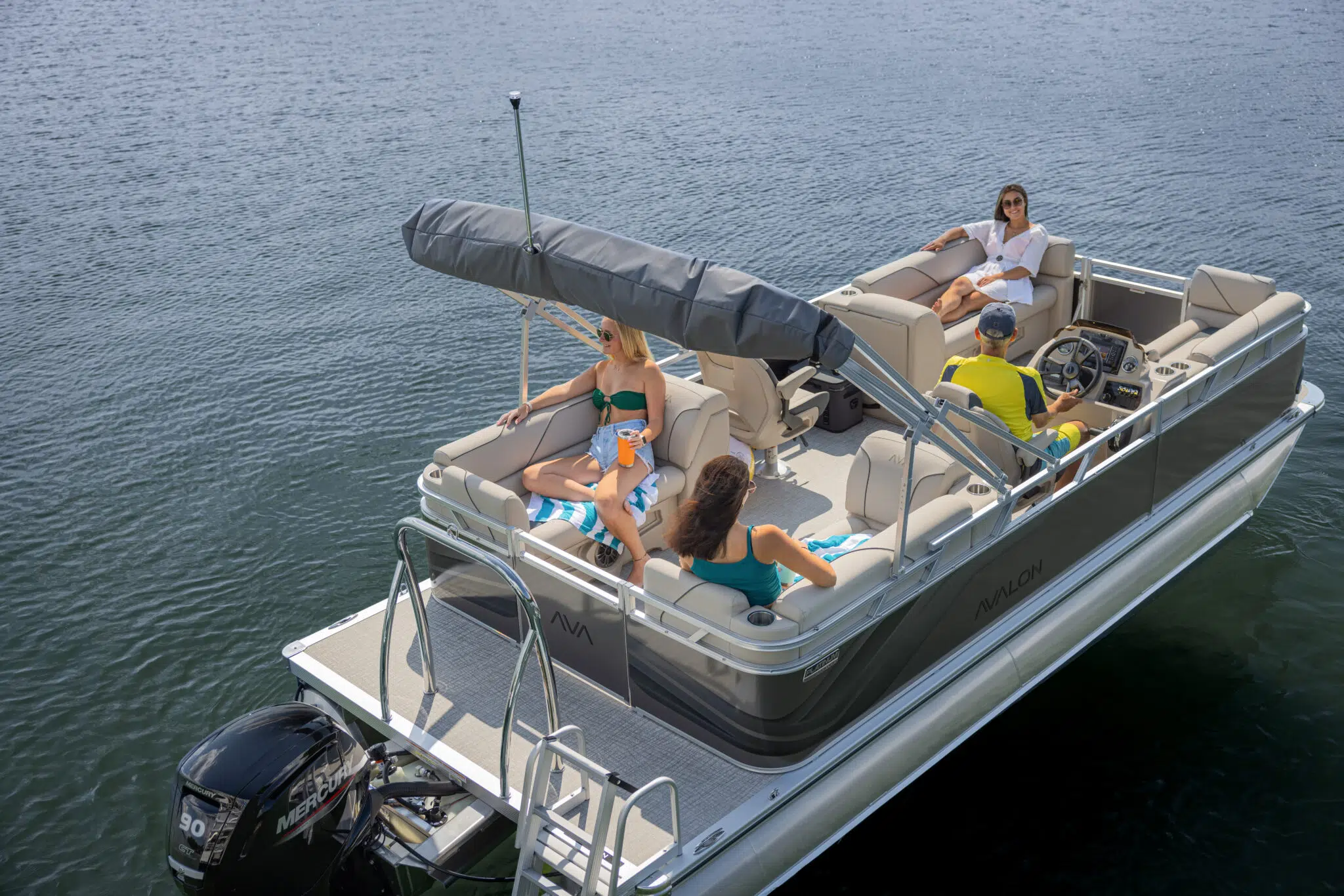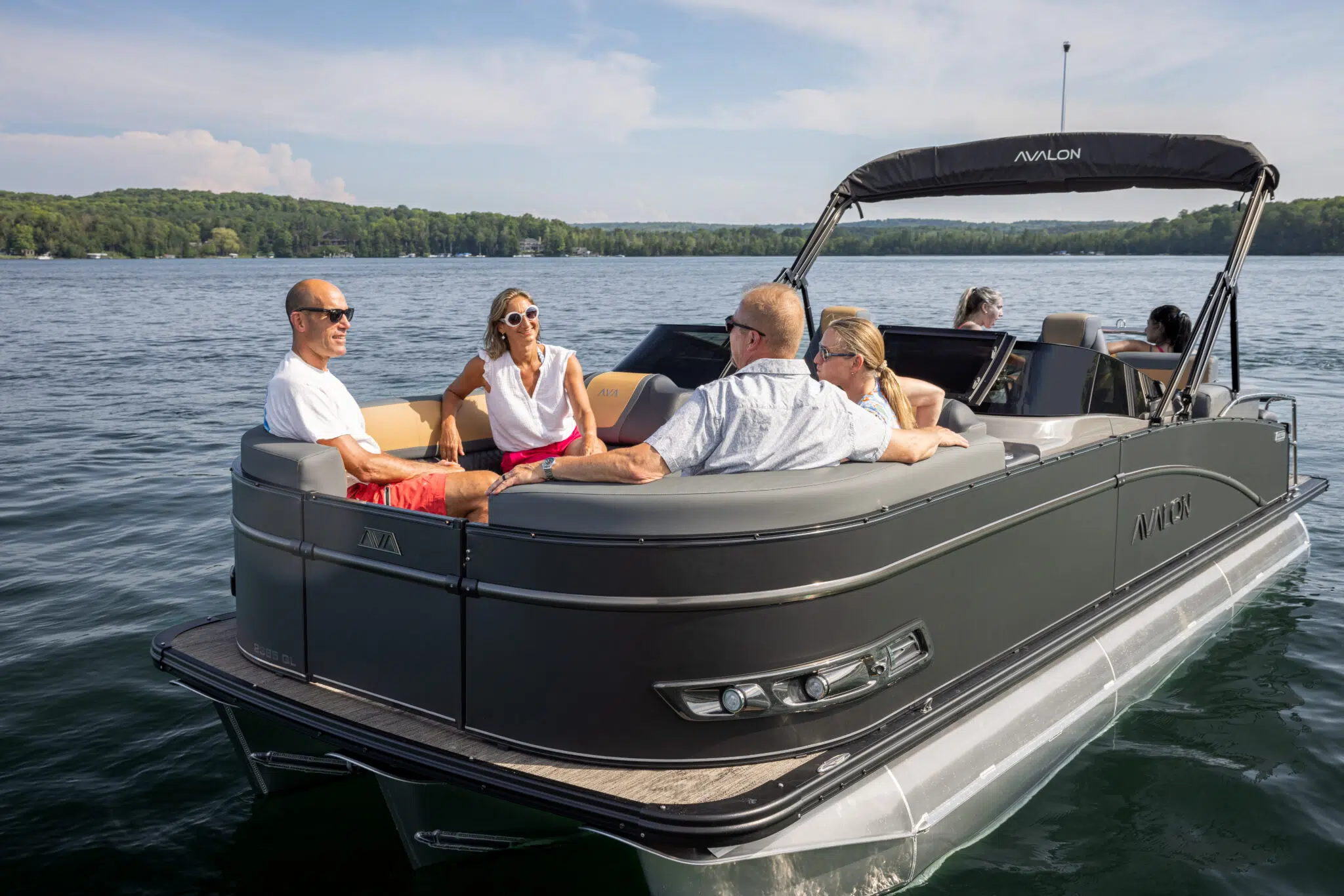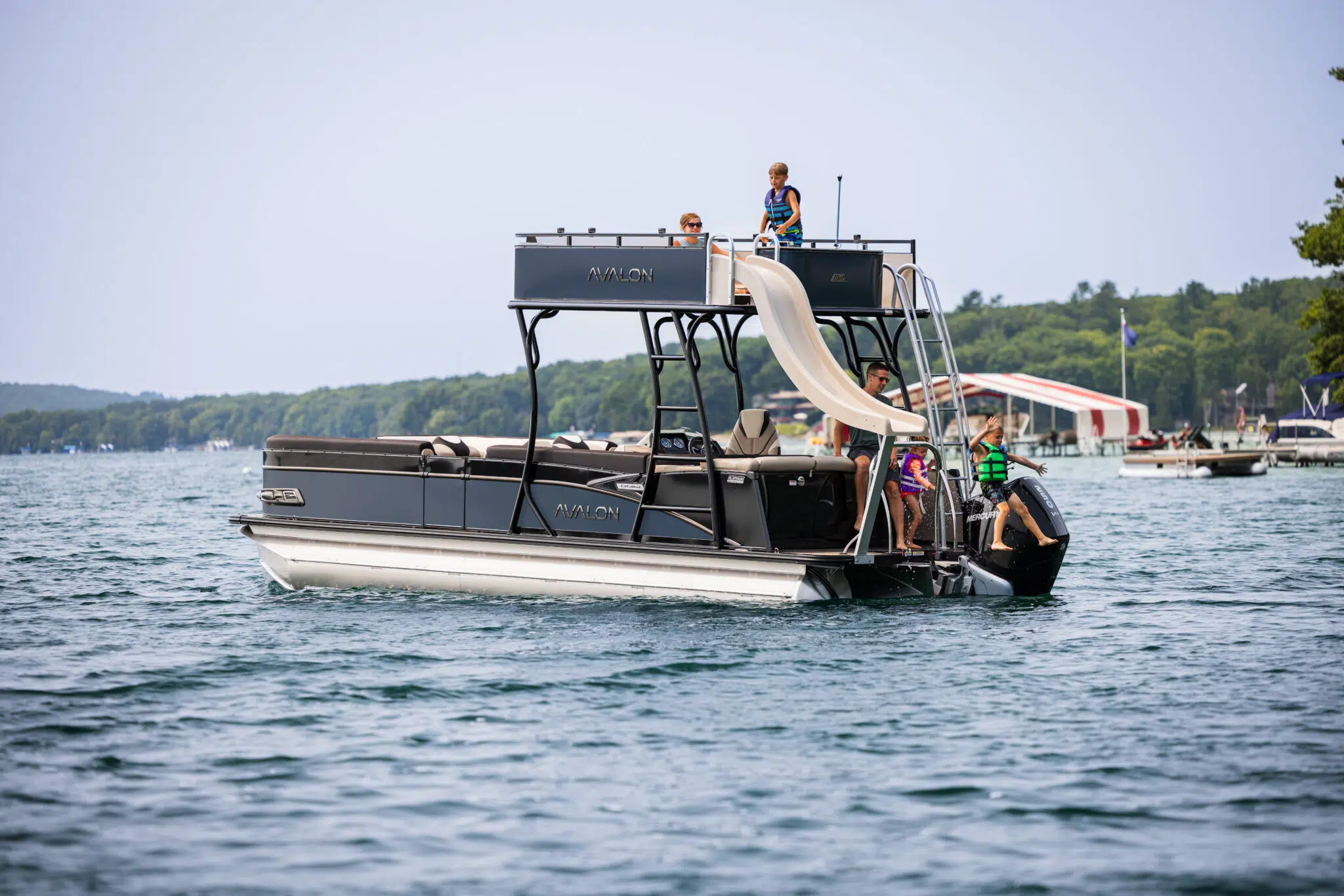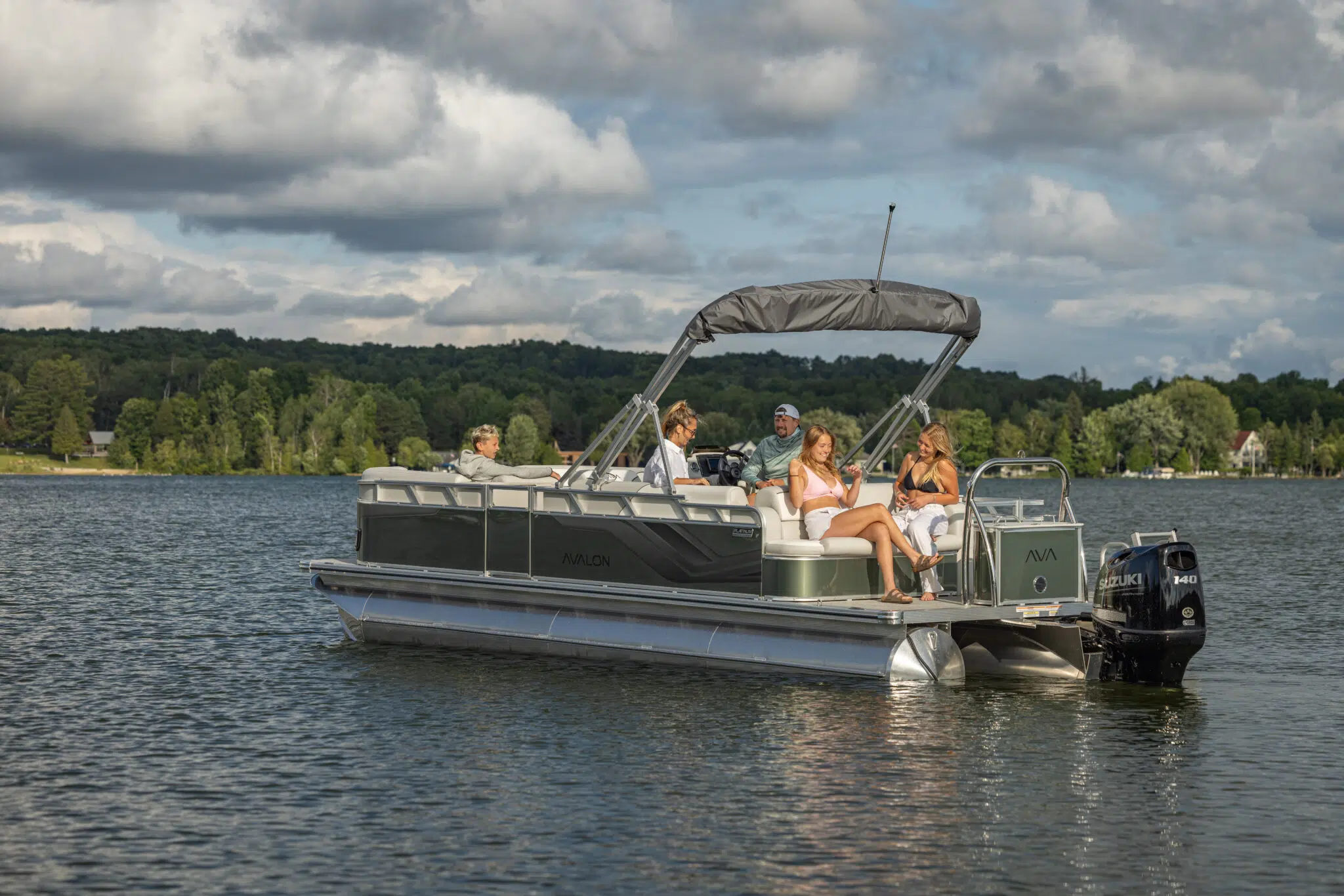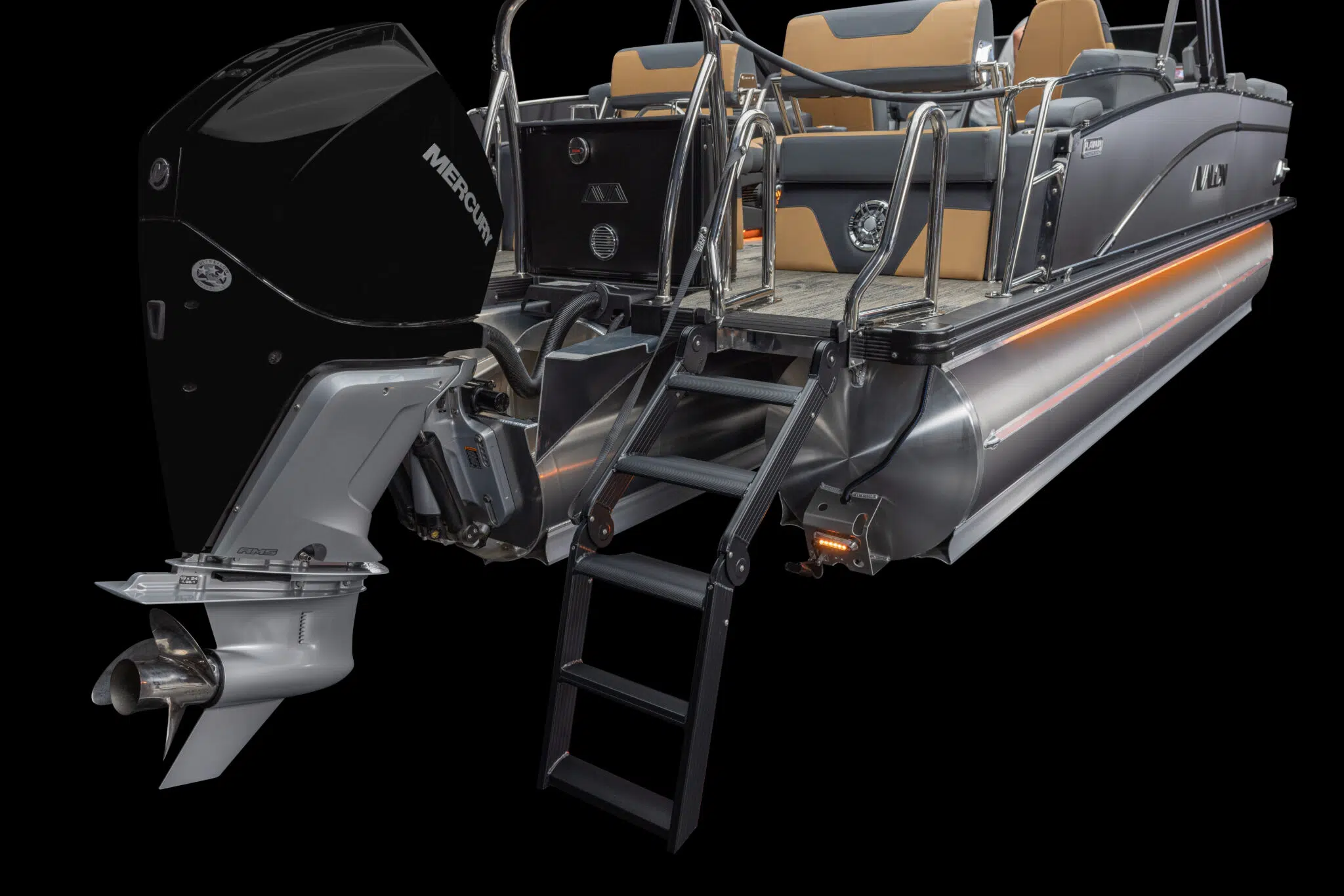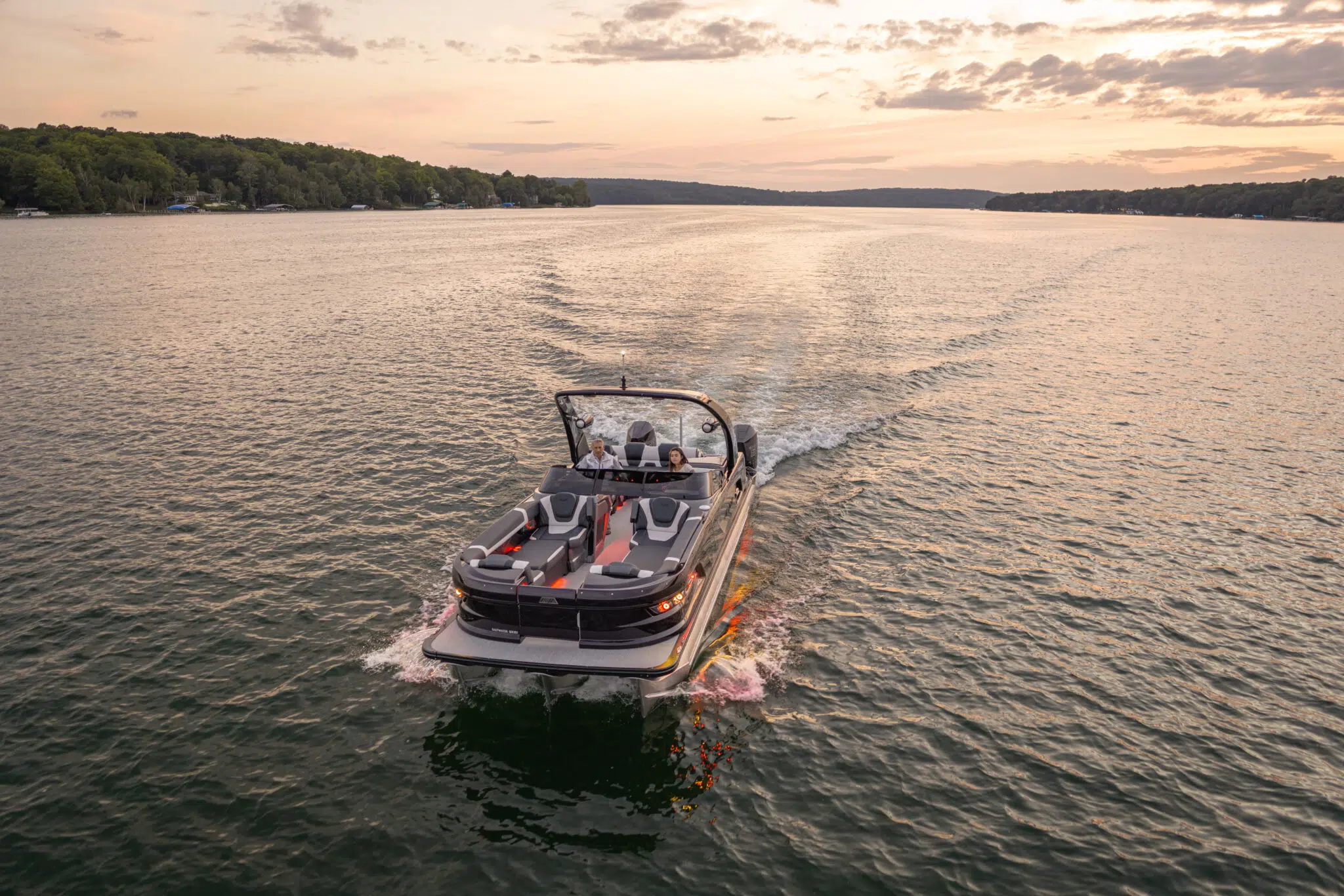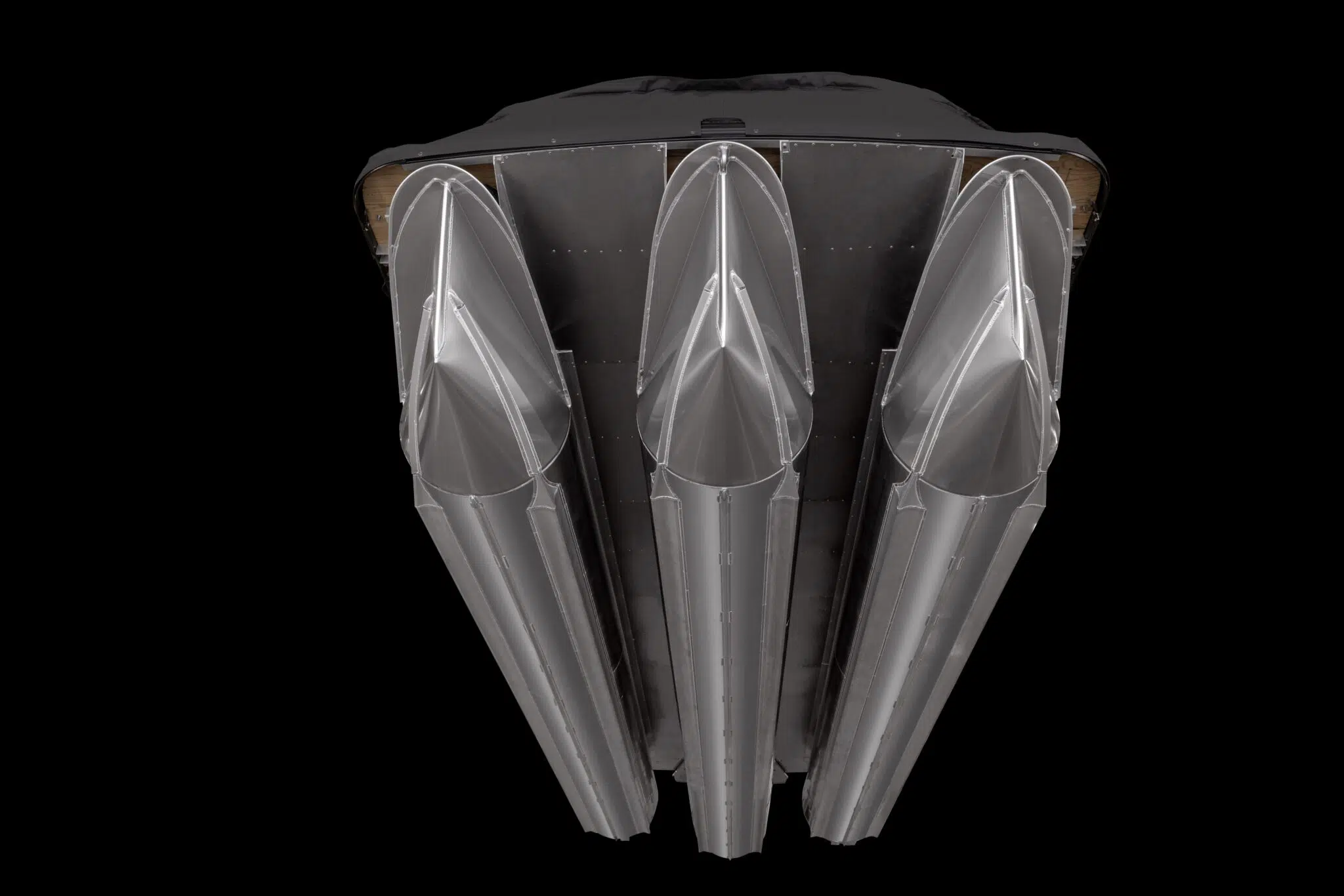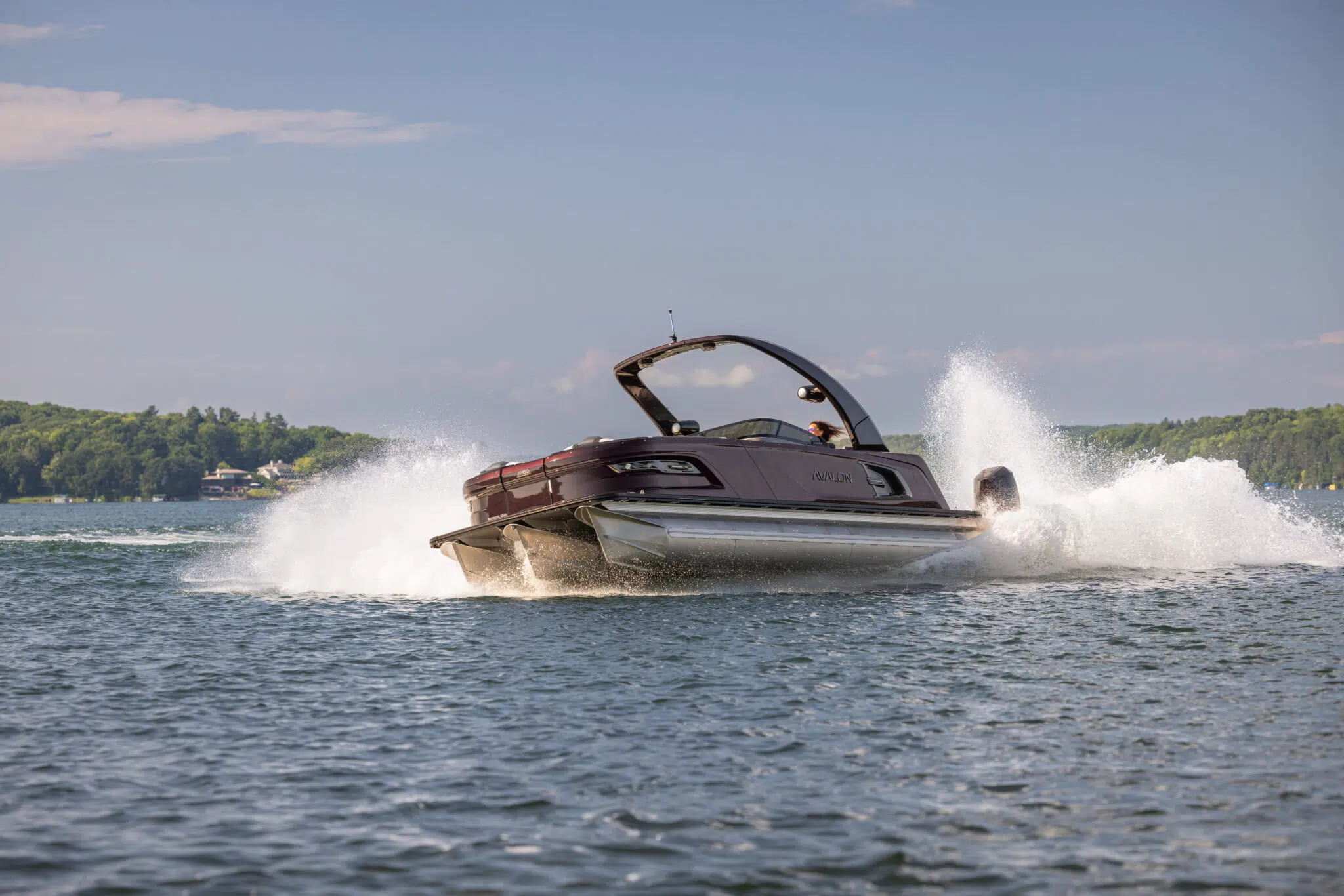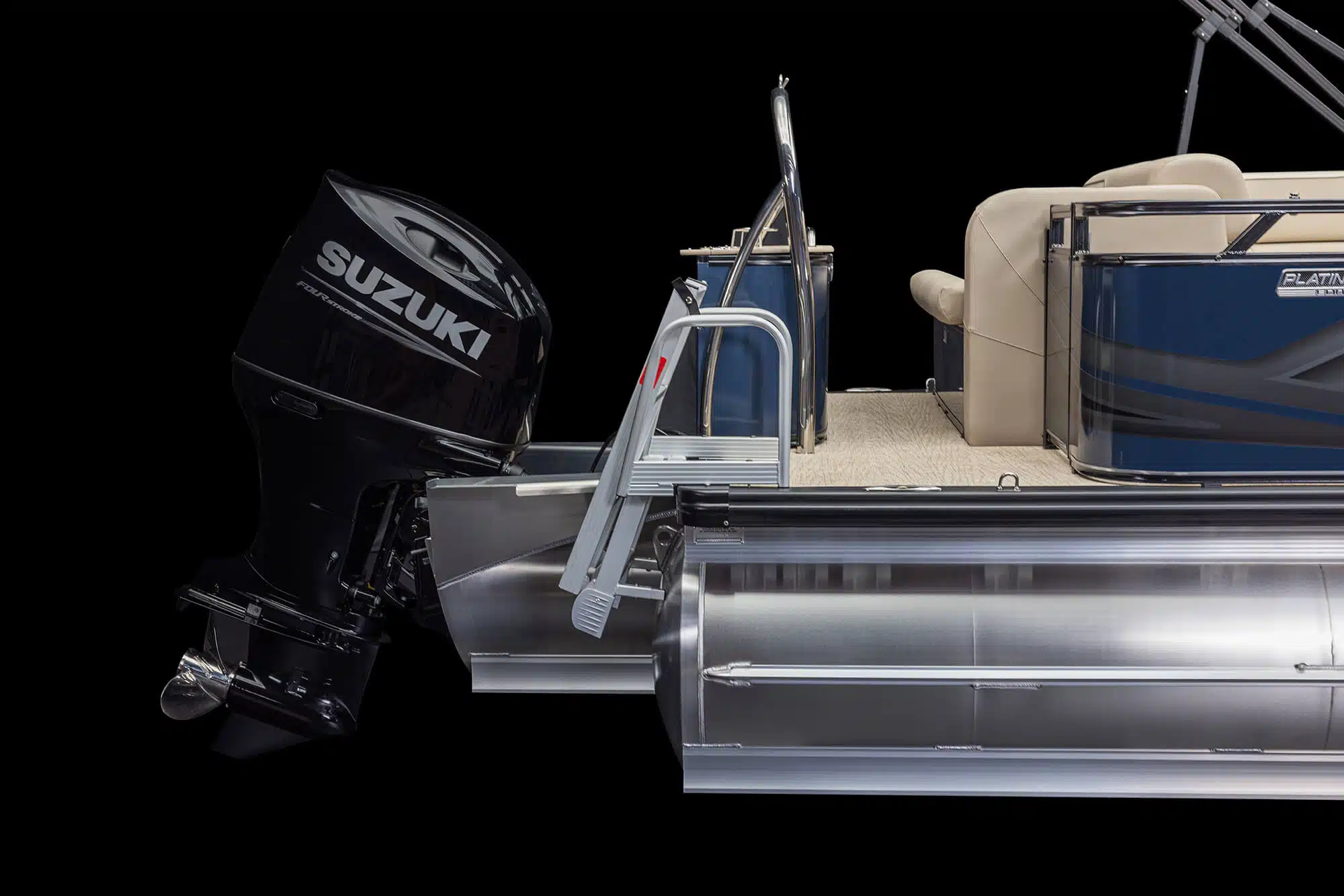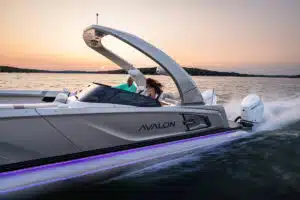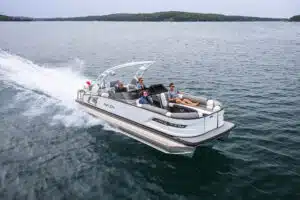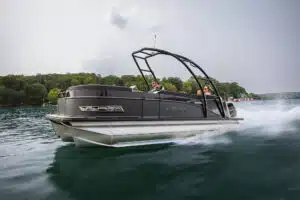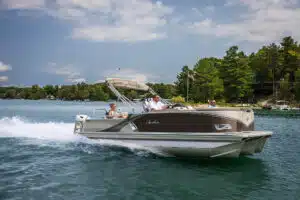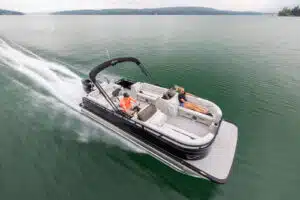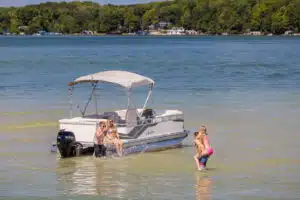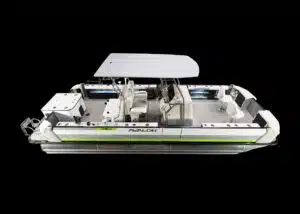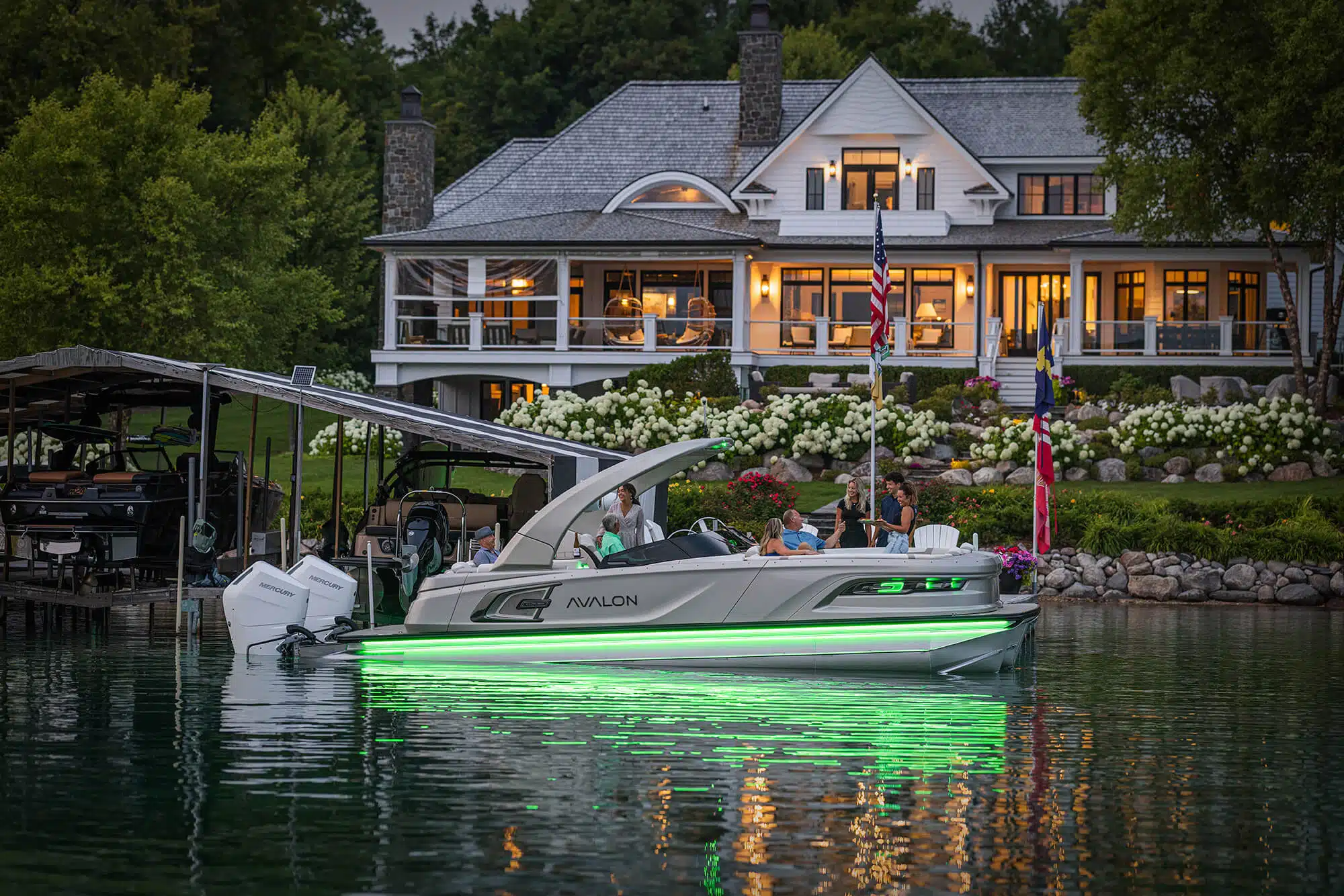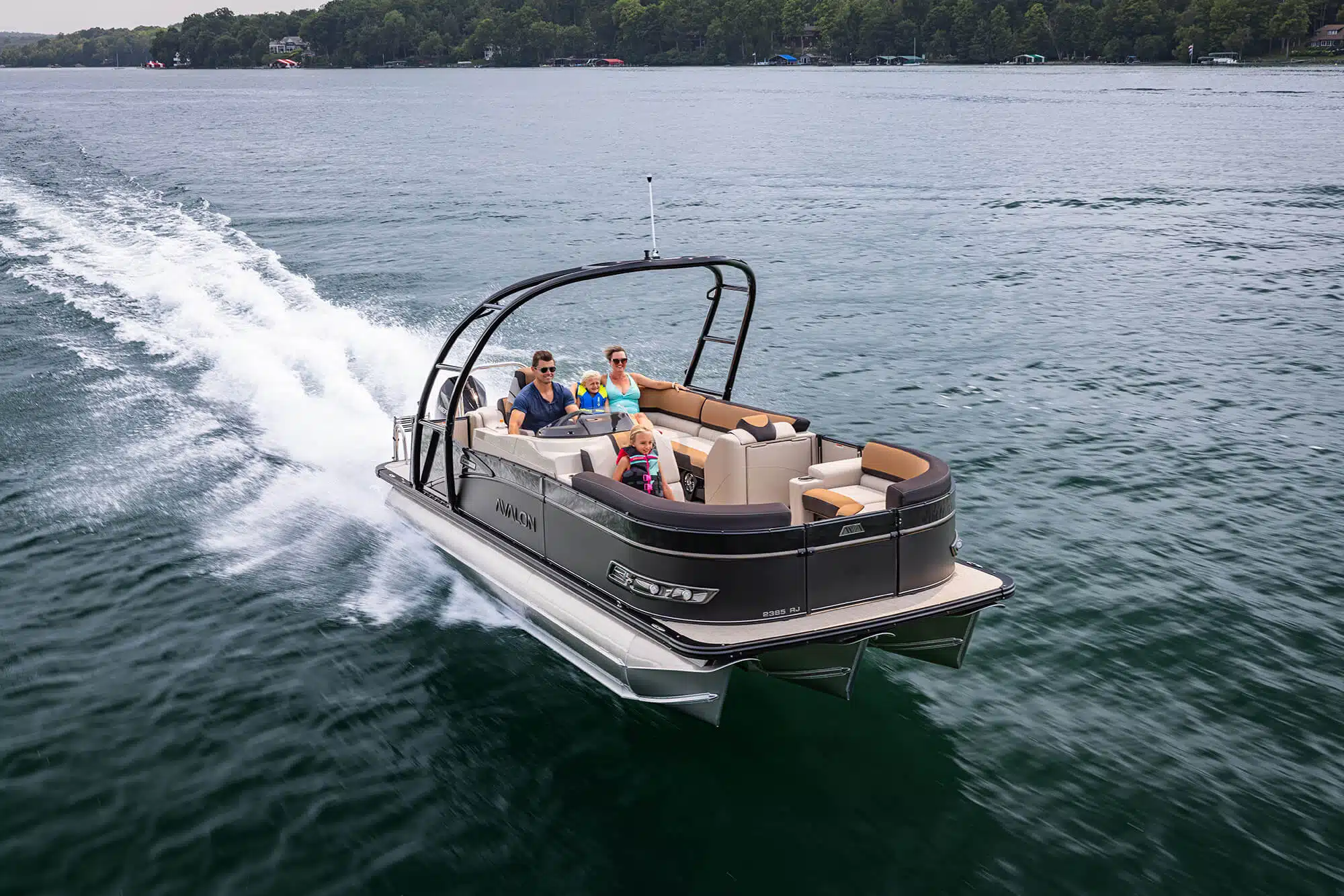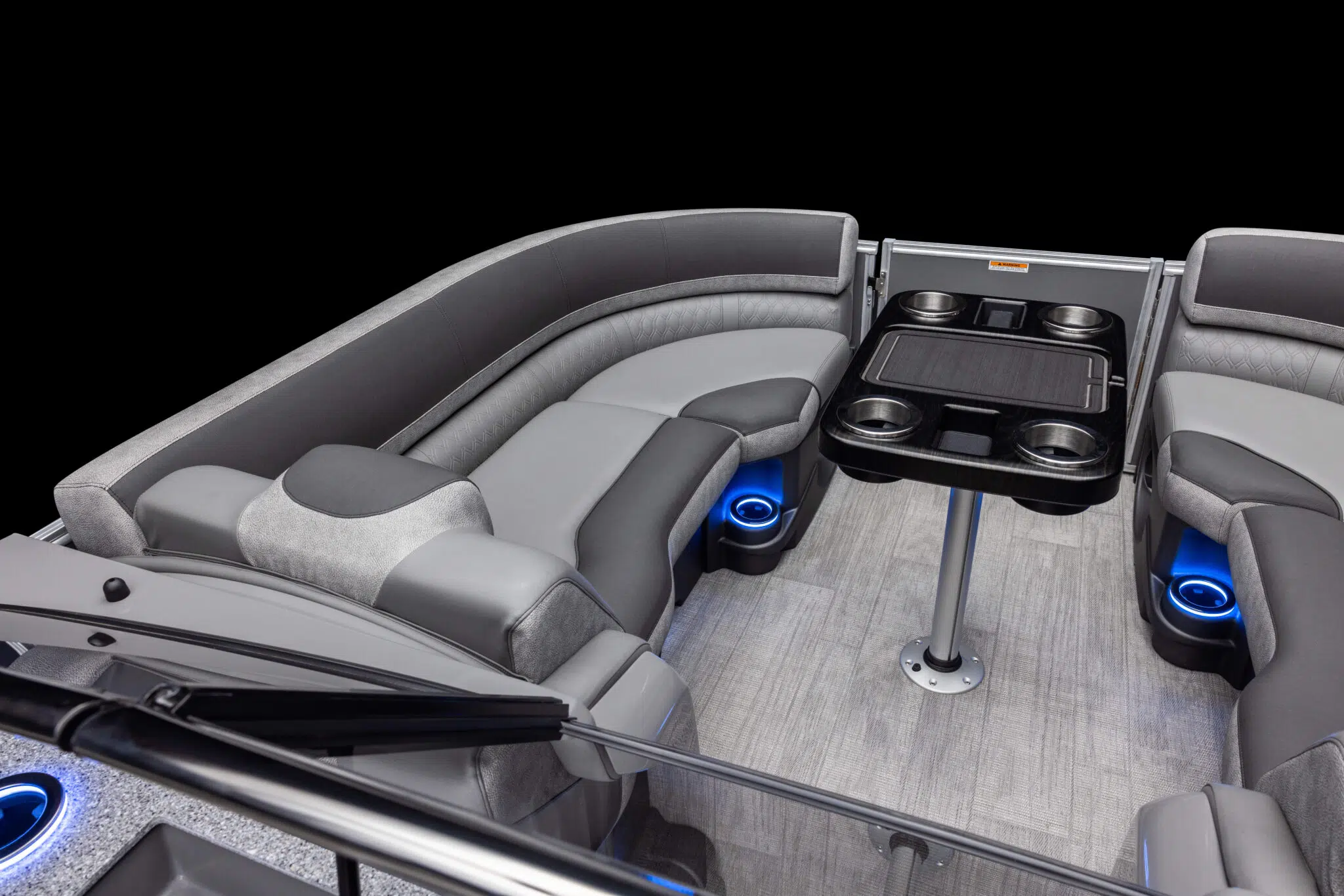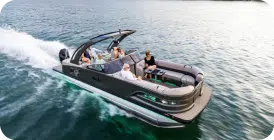When you’re about to buy a pontoon boat, it’s best to get it right the first time! The choice of inboard or outboard motor affects the engine’s strength, fuel efficiency, and maintenance requirements.
In this guide, we’ll explain inboard and outboard motors, the differences in their functionality, and which one might be the better choice for your next pontoon trip.
Inboard vs. Outboard Motors: The Big Difference
The location of the engine is the determining factor that differentiates inboard and outboard motors on a pontoon boat. While inboard pontoon motors are placed inside the hull, outboard pontoon motors are attached to the back of the boat and clearly visible.
Pontoon boats almost always use outboard motors. This is because they’re typically more powerful, quieter, and much easier to operate and maintain than inboard motors.
Let’s consider the pros and cons of each type.
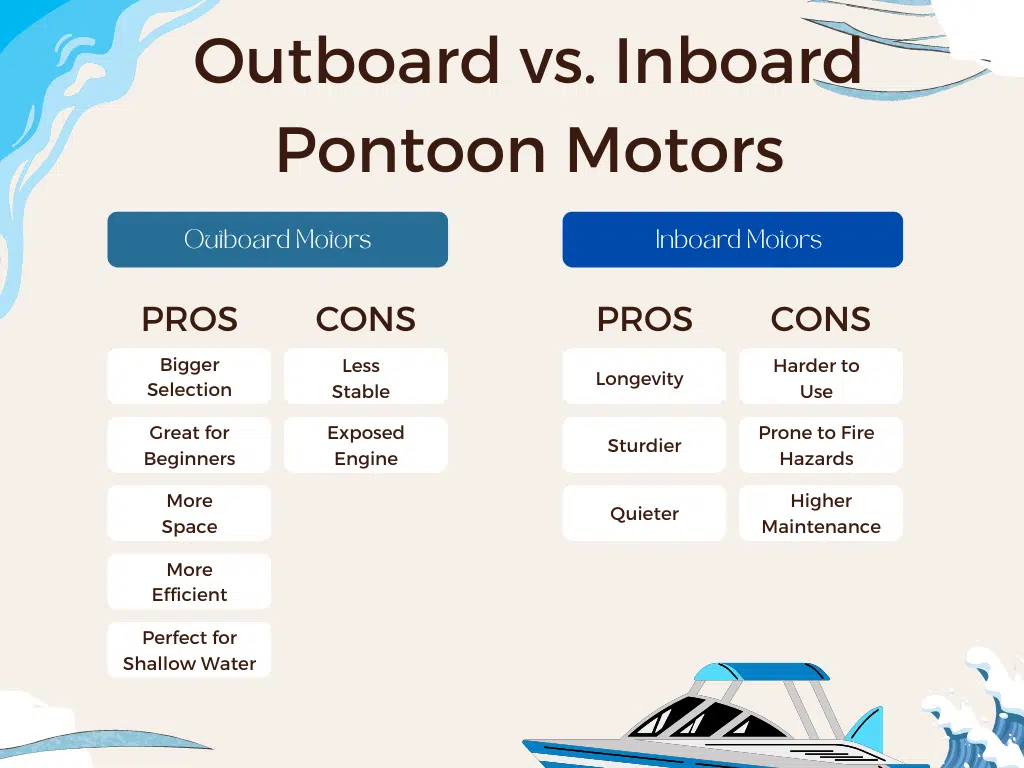
Outboard Pontoon Motors: The Advantages
Bigger Selection
Over 90% of pontoon boats have outboard motors. This means you’ll have a much larger selection to choose from and can be pickier about other specifications like seating, size, and storage.
Great for Beginners
An outboard engine makes steering much smoother and more natural. That makes it safer and easier for new captains and those who just want to sail and relax.
More Space
The engine’s placement outside the boat leaves more room for seating, gear, and water toys. If you have a big family or do a lot of entertaining, you’ll definitely want that extra space.
Easier Maintenance
An outboard motor is simply easier to clean and service because of its placement on the boat. That will save you time and stress.
Perfect for Shallow Water
Pontoons are generally used in shallower water, and outboard motors work well here. They’re capable of propelling the boat forward quickly and without too much noise.
More Fuel-Efficient
Outboard motors generally use less fuel to achieve the same results as inboard motors. Saving fuel is environmentally-friendly, more cost-effective, and means you can get more mileage out of your boat!
Outboard Pontoon Motors: The Disadvantages
Less Stable
These boats have a higher center of gravity and can’t cut through waves as easily. This puts you at a higher risk of capsizing and limits the weather conditions you can take the boat out in, as well as the activities you can do on the water.
Exposed Engine
When a boat’s engine is in the water, it is at risk of being damaged by waves, creatures, or terrain.
Inboard Pontoon Motors: The Advantages
Longevity
While an outboard motor needs maintenance after around 750 hours of use, an inboard one can go double the time, 1500 hours. That means more time on the boat and less at the dock.
Sturdier in Turbulence
They can better handle large waves, making them a much safer choice to take out into the ocean or use for water sports. They’re often favored by oceanic fishing trips.
Quieter
Inboard motors typically make less noise. However, this depends as much on the make, model, and age of the engine as the motor type.
Inboard Pontoon Motors: The Disadvantages
Inboard motors are rare on pontoon boats, and you’ll typically have less range to choose from. They also come with other disadvantages.
Harder to Use
Driving an inboard motor pontoon is more complex and takes experience. If you’re new to being a captain, it’s probably not a good choice for you.
More Prone to Fire Hazards
The placement of the engine makes it easier to catch on fire and/or sink. This means you will need to be vigilant about its maintenance and purchase a bilge blower to help prevent fires.
Higher Maintenance
Inboard pontoons need more consistent care and are harder to clean. While you’ll be maintaining less overall, you’ll need to stick to a strict schedule and be more knowledgeable about how to clean your boat. Repairs also tend to be pricier than on an outboard.
Inboard vs. Outboard Motors – The Takeaway
There are some great pontoon boats with inboard motors, but outboard motors give you so much more choice when selecting your boat! The range is incomparable, and the outboard motor is perfectly suited to the typical uses of pontoon boats.










